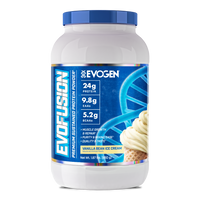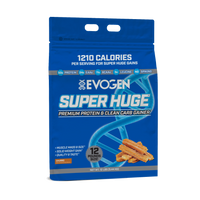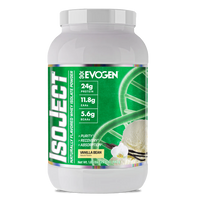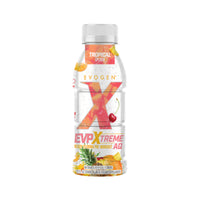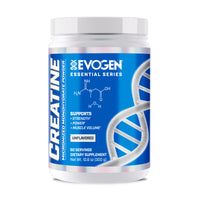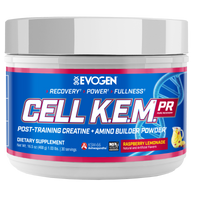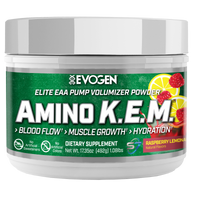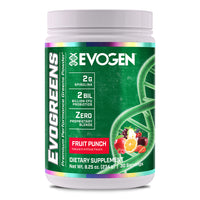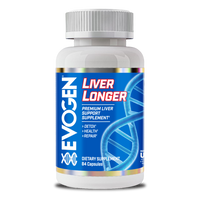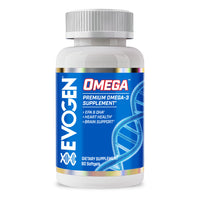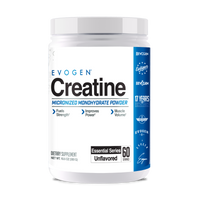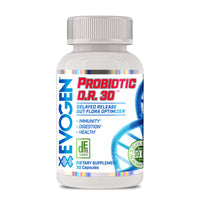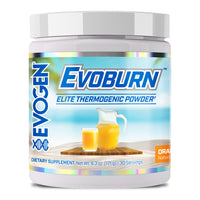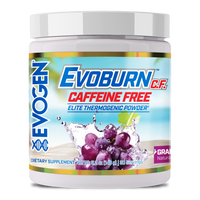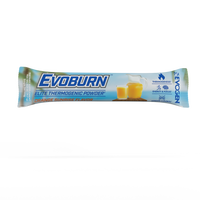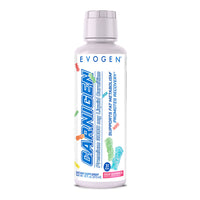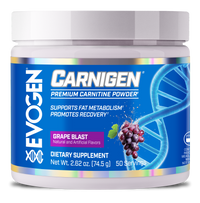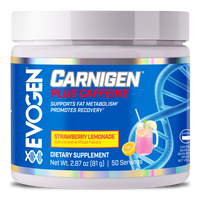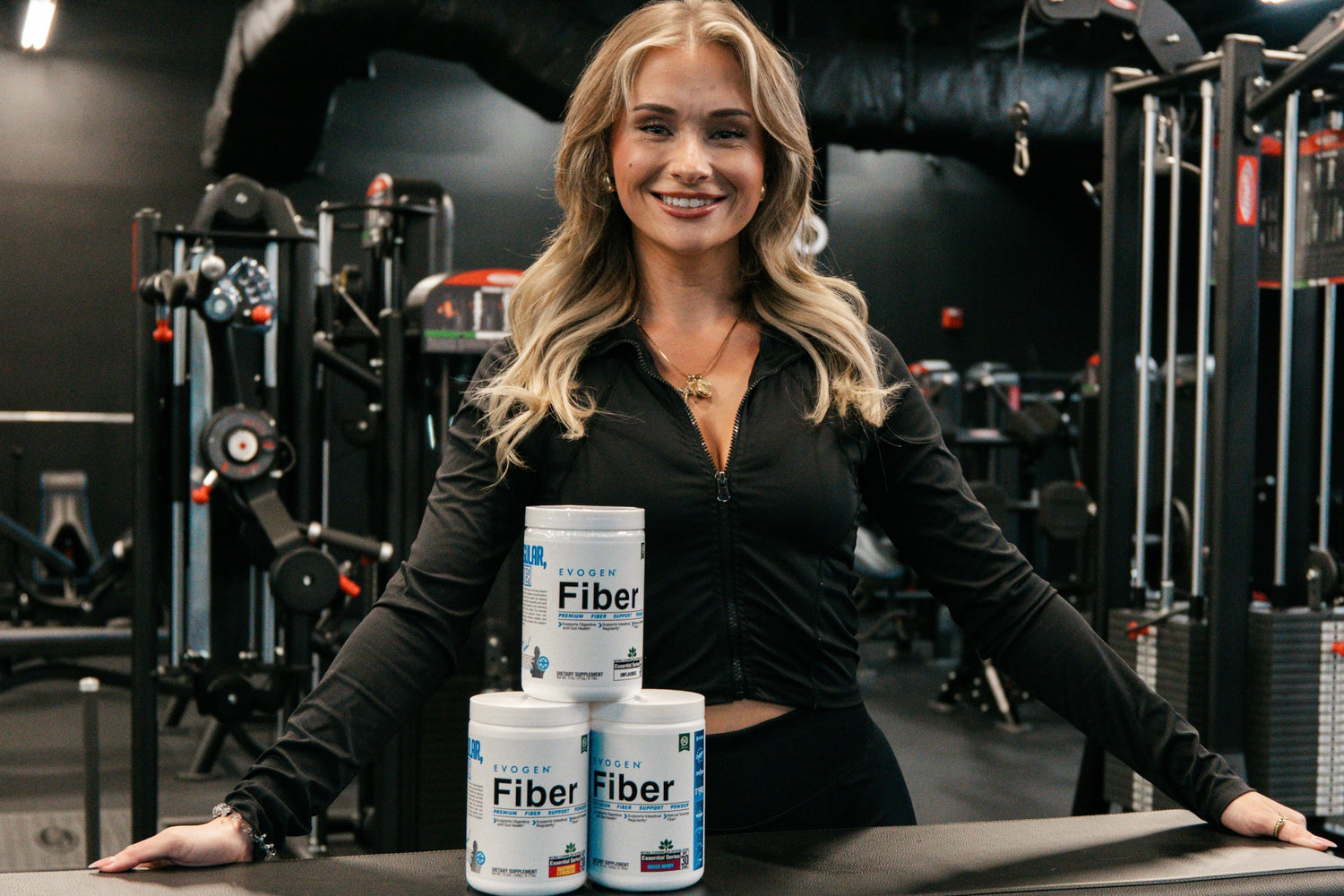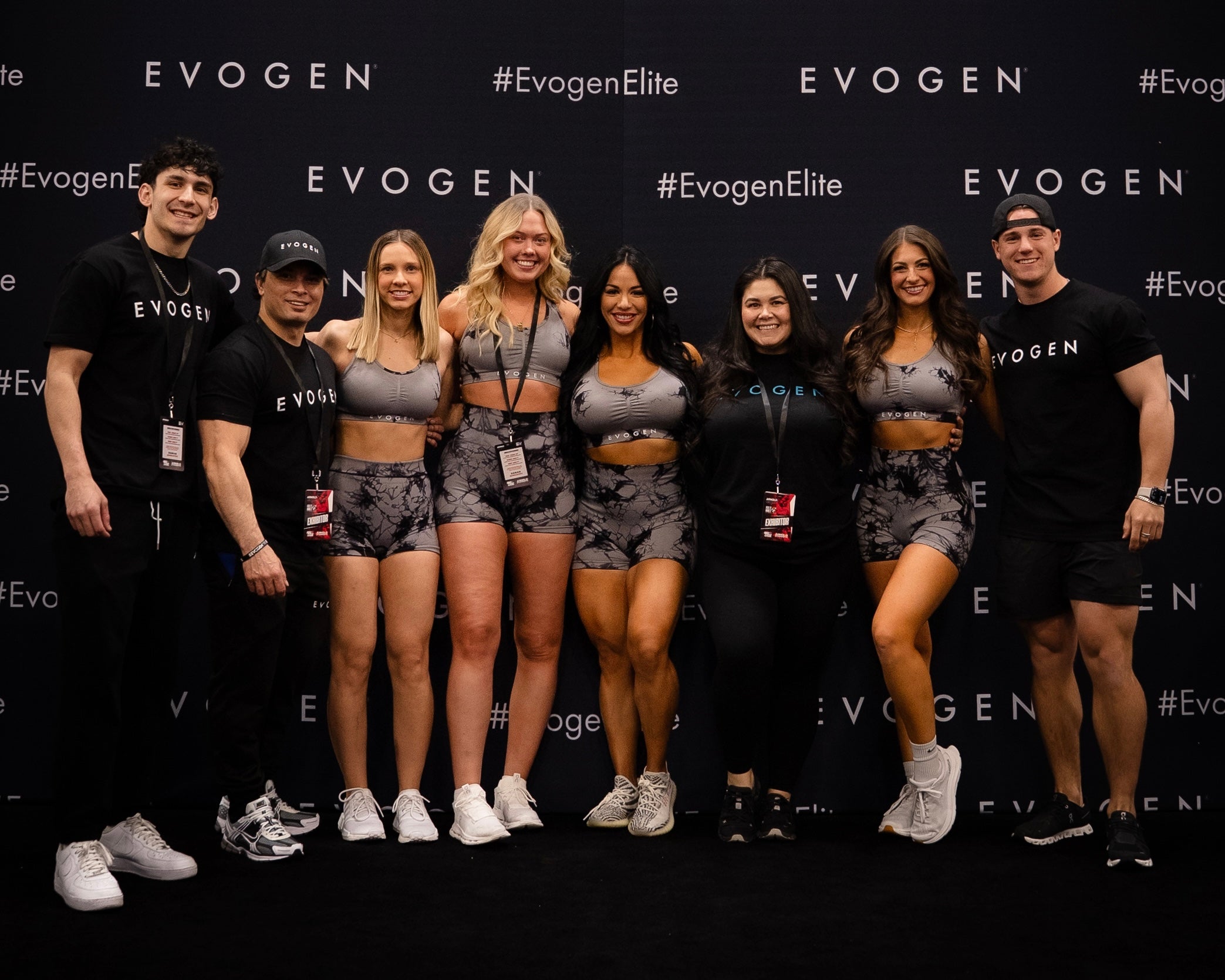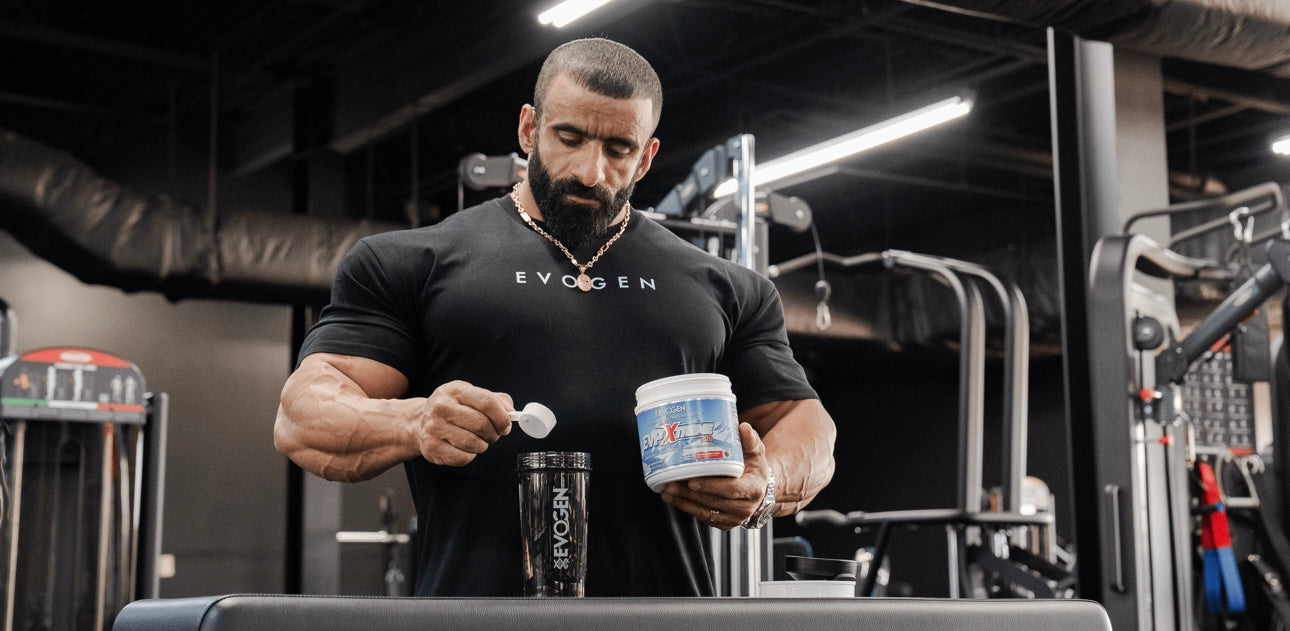As athletes, we tend to focus on our training, nutrition, and supplementation. But unfortunately, you're missing out on a key aspect of your nutrition and supplementation that could hold you back — fiber for athletes.
No, we're not talking about all the fun stuff like protein powders, creatine, testosterone boosters, or any of that. If you're not taking in enough fiber, you're at a major disadvantage.
In this article, we are going to dive deeper into how fiber for athletes can drastically benefit overall health and performance. If you want to stay ahead of the competition, you don't want to skip over this information!
Disclaimer: This article is for informational purposes only and is not meant to treat or diagnose any condition. It is recommended that you speak with your doctor before starting any exercise program, making changes to your nutrition plan, or adding any new supplements into your current regimen.
The Role of Dietary Fiber for Athletes
The fact of the matter is that fiber for athletes is incredibly important. If you want to experience better performance, a boost in energy, and enhanced recovery, you need to turn your focus to your fiber intake.
What many athletes fail to realize is that their gut health is linked directly to their athletic success. The things it can do for athletes and the general public are amazing.
Let's dive deeper into some of the benefits of fiber for athletes when added to your nutrition and/or supplement regimen.
1. Importance of gut health
Your gut acts as a control center for many systems in your body. A healthy gut helps you digest food better and absorb more nutrients from your food. Good gut health can lead to fewer stomach issues during training and competitions.
The gut microbiome (tiny bacteria in your digestive system) plays a vital role in fighting inflammation and boosting your immune system.
Your digestive system needs to be supported to perform at its peak. Eating foods rich in dietary fiber supports your healthy gut bacteria and can keep your intestinal barrier strong. During intense workouts, a strong gut barrier can stop harmful substances from entering your bloodstream.
Your sports nutrition plan needs to include gut-friendly foods to help maintain performance levels.
2. Energy production
If you want to boost your energy, look at your fiber intake. Consuming soluble fiber in foods can help keep your energy levels steady not only in the gym but also while competing.
This stable energy stops the ups and downs that can hurt your stamina.
Short-chain fatty acids from fiber help release glycogen (around 100 grams worth) from your liver. This makes up around 14% of the energy stores you can use. Stable blood sugar means you can train harder and longer without hitting that energy wall.
Overall, the athletes I train and help focus on their fiber intake tend to see better results and don't complain about losing energy.
3. Performance benefits
A stable gut microbiome helps you absorb nutrients better and may boost your energy levels during training. A daily fiber intake of 30 grams supports your performance by keeping your blood sugar levels steady throughout your workouts.
Athletes with balanced gut microbiomes can experience improved endurance and strength gains compared to those with poor gut health.
When you need your body to perform at a high level, your body demands dietary fiber to help support your high-intensity training.
4. Recovery
Something I tell my athletes that they never realized was that fiber plays a key role in their post-workout recovery. High-fiber foods actually help cut down inflammation in your body after brutal training sessions. This natural healing process helps muscles recover faster.
While consuming protein post-workout is ideal, it's the fiber intake that supports gut health and helps speed up nutrient absorption for faster and better recovery.
Keep in mind, smart fiber timing is important. Consuming fiber around workouts keeps your stomach happy while helping your body rebuild.
5. Cholesterol and heart health
As an athlete, the one muscle you can't neglect is your heart, and dietary fiber can help keep your heart strong and reduce your risk of heart disease.
Studies show that eating enough fiber reduces bad cholesterol and blood pressure levels. Your body reacts well to dietary fiber by helping drop both total cholesterol and LDL numbers.
6. Weight management and satiety
Fiber helps support your body composition and supports improved weight management. A daily intake of 20-35 grams of fiber can fill you up fast and may prevent hunger pangs and cravings.
This is important if you need to stay in a specific weight class for your sport (such as wrestling or bodybuilding) or require your body mass to stay lean for performance benefits when competing in various sports.
High-fiber foods take more time to chew and digest, which can lead to better portion control at meals. Smart athletes choose high-fiber foods to feel full without extra calories.
How Much Fiber Do Athletes Need?
Most athletes need 25-35 grams of fiber each day to keep their gut happy and healthy. Your fiber needs to go up with your calorie intake, so if you train hard, you'll need more fiber than the average person.
General fiber recommendations vs. fiber for athletes
Athletes need different fiber amounts based on their training intensity and goals. Your active lifestyle requires specific fiber adjustments to support your performance and recovery.
The chart below helps break everything down for you in a digestible form.
|
Criteria |
General Population |
Athletes |
|
Daily Fiber Needs (Women) |
25 grams |
30-35 grams |
|
Daily Fiber Needs (Men) |
38 grams |
40-45 grams |
|
Timing Considerations |
Spread throughout day |
Avoid 2-3 hours before training |
|
Current Average Intake |
10-15 grams |
15-20 grams |
|
Minimum Target |
20 grams |
25 grams |
|
Intake Assessment |
Monthly |
Weekly |
How to Focus on Fiber for Athletes
Consuming enough fiber in meals is important. Fiber for athletes can help you perform at a high level and maintain that performance. There are two main ways that you can take in more fiber — natural food and dietary supplements.
High fiber foods
Fiber-rich foods can support your athletic performance. Your body needs these natural energy sources at least two hours before exercise to avoid stomach issues.
· Oats deliver 4 grams of fiber per cup and make perfect pre-workout fuel
· Fresh oranges contain 3 grams of fiber and natural sugars for quick energy
· Brown rice offers 3.5 grams of fiber per cup, which is great for post-workout meals
· Sweet potatoes pack 4 grams of fiber and help muscle recovery
· Bananas provide 3 grams of fiber plus natural electrolytes
· Lentils contain 15 grams of fiber per cup and are a plant-based protein
· Chia seeds offer 10 grams of fiber per ounce with healthy fats
· Quinoa delivers 5 grams of fiber per cup plus complete protein
· Apples with skin contain 4.5 grams of fiber and natural sugars
· Black beans pack 15 grams of fiber per cup with lean protein
· Almonds provide 3.5 grams of fiber per ounce plus healthy fats
· Broccoli offers 5 grams of fiber per cup and key minerals
· Raspberries deliver 8 grams of fiber per cup plus antioxidants
· Green peas pack 9 grams of fiber per cup with plant protein
Fiber supplements
Most athletes consume only half of their daily fiber needs, making fiber supplements an easy way for you to reach your recommended daily intake. Below are some things to look for and consider.
· Look for clean fiber supplements without artificial ingredients to help meet your daily needs of 25-38 grams
· Start with small doses of supplements to avoid stomach issues during workouts
· Mix powder supplements into smoothies or shakes 30 minutes before exercise or before meals
· Choose supplements that blend both soluble and insoluble fiber types
· Read product labels to avoid supplements with added sugars
· Space fiber supplements 2-3 hours apart from other supplements or medications
· Track your daily intake to ensure you don't exceed 50 grams of total fiber
· Pick supplements that list the fiber source clearly on the label
· Store supplements in cool, dry places to maintain their effectiveness
· Stop taking supplements if you notice any digestive problems
· Drink plenty of water throughout the day
· Taking fiber supplements at the same time of day helps improve your consistency with taking the product
Taking in Enough Fiber for Athletes is Crucial
As an athlete, you train hard. Therefore, taking in quality ingredients and macros is non-negotiable. As a certified sports nutritionist and strength coach, I emphasize fiber for athletes with every client I work with.
With fiber, my clients and you have the ability to support performance, recovery, and overall health.
Adding a daily fiber supplement like Evogen Fiber to your routine can help you feel fuller longer, curb unwanted cravings, and keep blood sugar levels in check — crucial benefits whether you're in-season, off-season, or deep in prep.
Evogen Fiber Support Powder is a high-quality fiber supplement specifically formulated for elite performance. Whether you're chasing a pro card, a team championship, or just trying to optimize digestion and nutrient absorption, this premium fiber powder is the perfect addition to your current supplement stack.
This powerful fiber supplement features clinically backed ingredients like psyllium husk, digestion-resistant maltodextrin, and inulin. Athletes coached by Hany Rambod, including several Olympia champs, have all seen the value of keeping fiber front and center in their diets. Now it's your turn.
Don't sleep on fiber for athletes. Grab some Evogen Fiber today!
Fiber for Athletes Resources
1. https://www.nifs.org/blog/the-power-of-fiber-in-an-athletes-diet
2. https://digitalcommons.jsu.edu/ce_jsustudentsymp_2025/66/
3. https://pubmed.ncbi.nlm.nih.gov/39775524/
4. https://pmc.ncbi.nlm.nih.gov/articles/PMC5731843/
5. https://pubmed.ncbi.nlm.nih.gov/23765356/
6. https://pubmed.ncbi.nlm.nih.gov/11396693/
7. https://pmc.ncbi.nlm.nih.gov/articles/PMC10666946/
Author:
Matt Weik, BS, CSCS, CPT, CSN, is the owner of Weik Fitness. He is a globally recognized and prolific writer. With a passion for creating health and fitness content, Matt's work has been featured on thousands of websites, over 100 magazines, and he has authored over a dozen published books.

